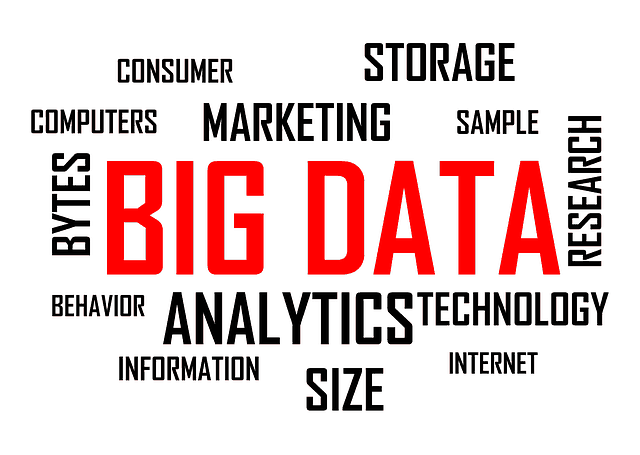Big Data stands for large amounts of data sets that are collected and stored for analyzing so that it can be used by companies and organizations to make better decisions and improve business. Big Data can be either structured or unstructured. As the name suggests, structured data can be easily organized and analysed, while on the other hand, unstructured data is far more difficult to analyse and comes in a variety of different formats. Furthermore, it can’t be easily interpreted by traditional data processes and models.
Several companies and organizations of all sizes are now using Big Data as a method to gain more information to grow their company and serve their clients and customers in a better way. With the growth of the internet, smartphones, wireless networks, social media, and other technology, Big Data has become more popular than ever.
The key to success with Big Data does not lie in the quantity of data a company collects and gathers, but how the company actually puts to the use this collected data. The more efficiently a company utilizes its data, the more likely it is to see growth and succeed.
Before jumping on the Big Data bandwagon, it is important to bear in mind that besides several advantages, it does have its own drawbacks as well. Thorough research and a proper understanding of what will work best for your company is crucial to achieving success with Big Data. Here are a few advantages and disadvantages of Big Data .
Advantages of Big Data
Table of Contents
1. Cost Cutting
Big Data provides business intelligence that can improve the efficiency of operations and cut down on costs. Big Data technologies such as Hadoop and other cloud-based analytics help significantly reduce costs when storing massive amounts of data. They can also find far more efficient ways of doing business.
Though initial implementation may seem expensive, it will eventually save a lot of money in the long run. The reduction in waiting time reduces the stress on the organization’s IT landscape, and so resources previously set aside to respond to report requests are now freed up.
2. Better Decision Making
Businesses are now able to analyse information instantly thanks to the quick processing of Hadoop and in-memory analytics, added with the ability to analyse new sources of information. Based on what they’ve learned from all this, companies are able to take faster and better decisions.
Big Data is able to analyse data from the past which can be used to make predictions about the future. This makes businesses take better decisions in the present as well as prepare for the future. Data insights into customer movements, promotions and competitive offerings give useful information with regards to customer trends. With real-time analytics, quicker decisions can be made that are better suited to present customers.
3. New Products and Services
Now that companies using Big Data tools understand how customer patterns work and what works better and what doesn’t, this grants the company the ability to estimate customer satisfaction and needs, and are thus able to come up with products and services that customers would want.
With Big Data analytics, far more companies are now able to create new products and services to meet the needs of their customers. Companies are able to analyse data from the past about customer feedbacks and product launches which helps them to come up with better products. Additionally, real-time market analysis helps in customer-oriented marketing by allowing businesses to understand changes in consumer behavior and shifts in supply and demand of products. Understanding consumer needs, buying behaviors and preferences can help with the increasing demand for personalized services.
4. Fraud Detection
Big Data helps to automatically detect fraud attempts to hack into your organisation and you will be instantly notified of a real-time safeguard system. Once you detect a fraudulent attempt, you can immediately take appropriate action. You can map the entire data landscape across your organization using Big Data tools.
This will let you analyse different internal threats and use this data to keep sensitive information secure and safe. It is stored following regulatory requirements and protected in an appropriate way. Because of this, many industries have begun to use Big Data for data safety and protection, especially so in organizations and companies that deal with financial information.
5. Control Online Reputation
Big Data tools can help understand the company’s reputation through sentiment analysis. This gives you feedback about what people say about your company, which will allow you to improve your company’s online presence and reputation.
Disadvantages of Big Data
1. Incompatible tools
Hadoop is the most commonly used tool for Big Data analytics. However, the standard version of Hadoop is not currently able to handle real-time data analysis. This means that other tools need to be used while we wait around for Hadoop to add functionality to a real-time approach in the near or distant future.
2. New approach
Most organizations are used to working in a manner where insights and updated are received approximately once in a week. With Big Data bringing in insights every second, the organisation will require a different approach and work method to handle this influx of information at a much faster rate than the company is used to handling.
Insights need action and with Big Data, this action is now required in real-time. This will drastically affect work culture, a change that the company may or may not be immediately ready for. This could definitely be a great challenge to some organisations and may lead to a restructuring of plans and decisions.
3. Chances of Failure
Many organizations may see other companies using Big Data, and its benefits being touted all over the internet as the best tool to grow one’s business. This may cause them to take hasty decisions and try to implement it immediately without understanding how to use it and whether it is suited to their business or not.
If Big Data is not implemented in the appropriate manner, it could cause more harm than good. Companies that are not used to handling data at such a rapid rate may make inaccurate analysis which could lead to bigger problems for the organization.
4. Correlation Errors
A common technique used to analyse Big Data is to draw correlations by linking one variable to another to form a pattern. However, their correlations may not always stand for anything substantial or meaningful. In fact, just because two variables are linked or correlated does not imply that an instrumental relationship is present between them. In short, correlation does not always imply causation.
A thorough analysis with the help of a data expert will help you understand which of these correlations mean anything to your business and which absolutely don’t.
5. Security and Privacy Concerns
Though it may seem ironic since we already mentioned safety and security as an advantage for Big Data, it is important to understand that although Big Data analytics allows you to find fraudulent attempts, the framework itself is prone to a data breach as is the case with many technological undertakings.
The information that you provide to a third party may get leaked to competitors and customers. There are also privacy concerns as many customers are not comfortable with the idea that Big Data is capable of a collection of detailed information about their identities.
Summary
Real-time Big Data analytics can be extremely important to a business, but the business must first figure out if the advantages of using Big Data analytics outweigh the disadvantages specifically in their own case and situation. If they believe the advantages are greater, they need to strategize how to overcome the disadvantages.
Ultimately, it all boils down to whether you know how to use Big Data appropriately to your advantage in order for it to be useful for your company. Big Data analytics is still a relatively new technology, so some of the current challenges are expected to be resolved as this technology grows and evolves in the future.







